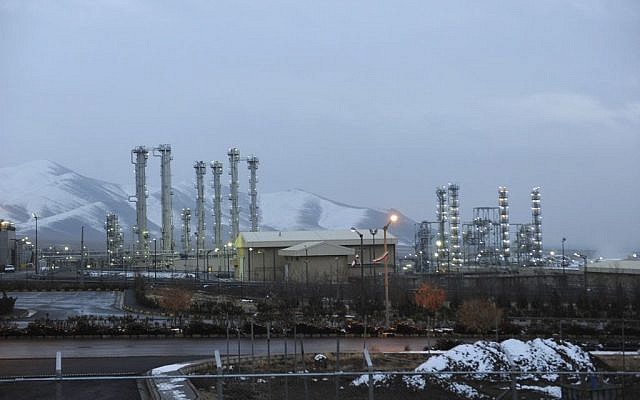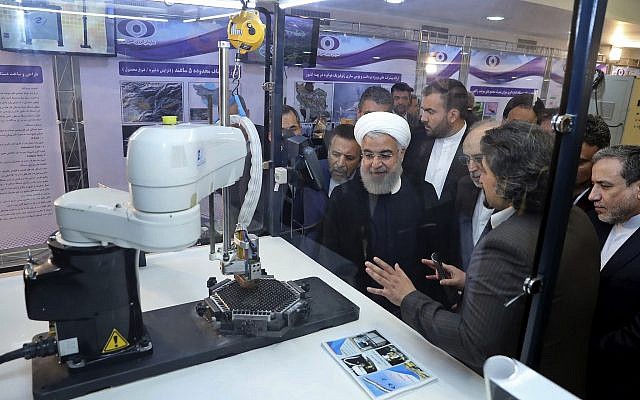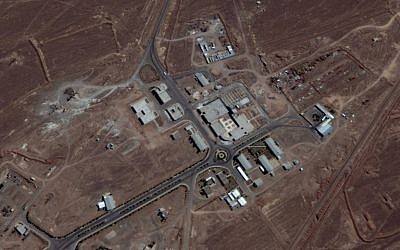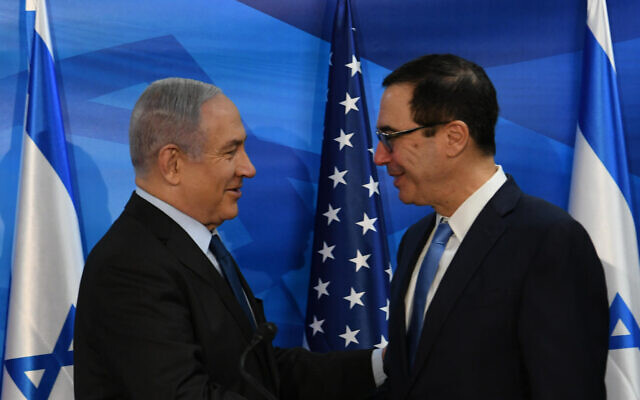Sources say allowing Russian, Chinese and European companies to work at Arak and Fordow facilities will aid non-proliferation efforts

The US will let international companies continue to work on Iranian nuclear sites despite the strict sanctions regime Washington has imposed on the country, according to a Thursday report.
Washington will issue sanctions waivers to Russian, Chinese and European companies enabling them to cooperate with the Atomic Energy Organization of Iran.
By keeping the foreign firms at the Iranian facilities, it will make harder for Iran to develop nuclear weapons in secret, two sources told Reuters.
The waivers will enable work to continue at the Arak heavy water research reactor and the Fordow fuel enrichment plant.
Under the terms of a 2015 deal, Iran’s Arak nuclear site was to be reconfigured to make it unable to produce weapons-grade plutonium and another plant at Fordow was to stop enriching uranium.
But Iran has recently said it is ramping enrichment activity back up after the US withdrew from the nuclear pact and reintroduced crippling sanctions.

According to Reuters, by issuing the waivers the US may be signaling that it is still open to hammering out an end to a standoff with Iran over the deal.
The Joint Comprehensive Plan of Action, signed between Iran and the US, Britain, France, Russia, China and Germany, lifted economic sanctions on Iran in return for curbs on its nuclear research to prevent it developing nuclear weapons.

The Trump administration withdrew from the JCPOA and reimposed US sanctions under what it calls a “maximum pressure” policy to force Iran into negotiating even tighter controls on its nuclear program and limitations on its missiles development.
Israel has pushed for increased sanctions on Iran, which it says is seeking ways to attack the Jewish state.
US Treasury Secretary Steven Mnuchin pledged Monday to increase sanctions against Iran, during a visit to Jerusalem.
Mnuchin said American sanctions seek to counter the threats Iran poses in the region, and that the administration “will continue to ramp up more, more, more.” He gave no indication of what form those new sanctions might take or when they could materialize.

“We are not doing this to hurt the people of Iran, we are doing this so that Iran stops their bad activities and exporting terrorism, looking to create nuclear capabilities, and missiles,” Mnuchin said.
Iran has said it will only open negotiations if the US first returns to the original pact and removes its sanctions which have devastated the Iranian economy.
The remaining parties to the JCPOA, as well as Iran, have said they want to keep the deal going but European countries have struggled to find a way around the strict US sanctions.
The dispute has raised tensions in the Persian Gulf region, where Iran has been accused of attacks on oil tankers and shooting down a US drone earlier this year.
As reported by The Times of Israel
